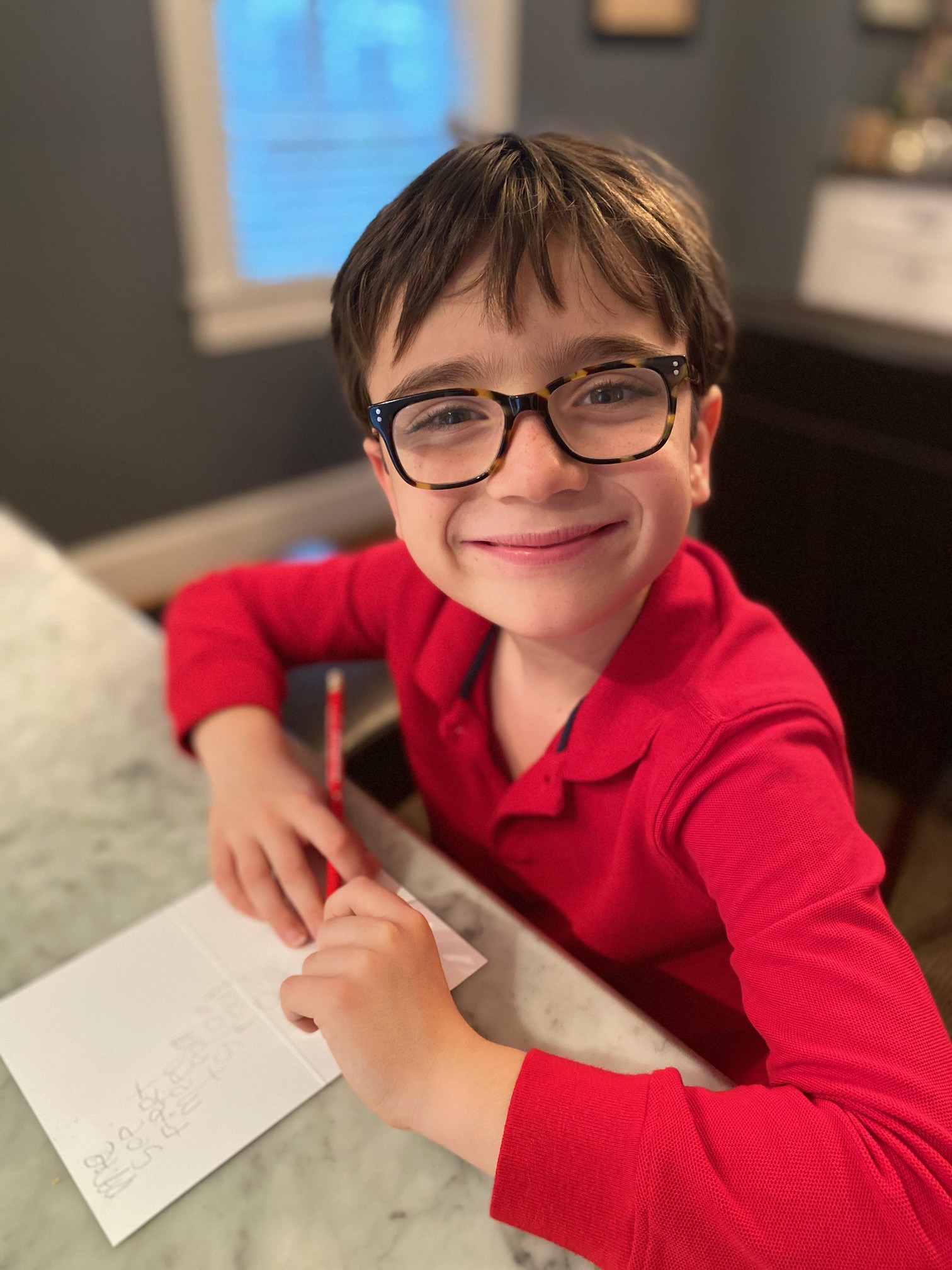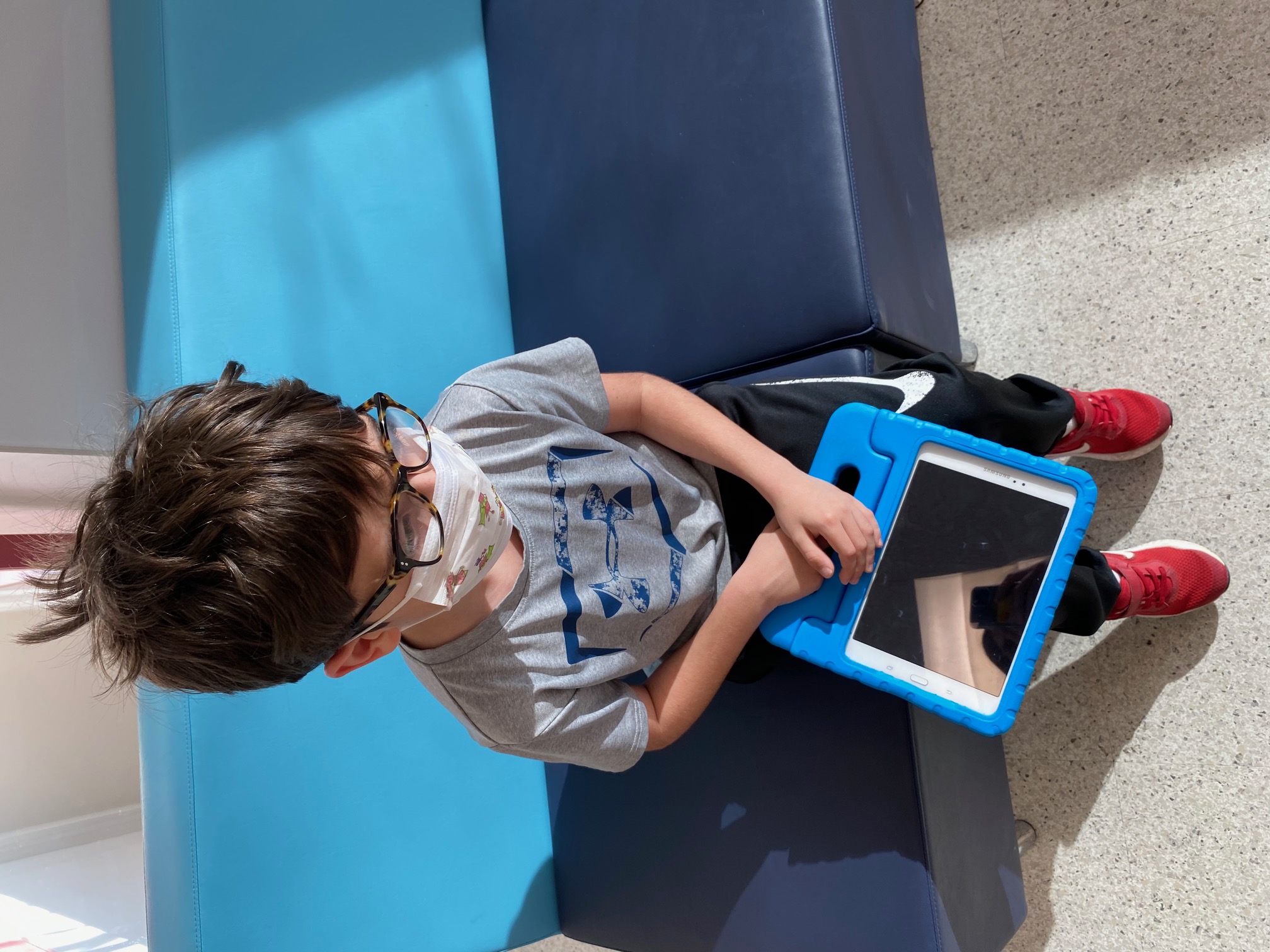Six months ago, my seven-year-old son, Davidson, was diagnosed with a rare, genetic kidney disease. We were told that without a transplant, he would die. Dialysis would be an option, but not a sustainable one.
We had time — probably months — but no one knew for sure.
Thirty days after his diagnosis, we were elated to learn that I, his mother, could donate my kidney to him.
While his condition was serious, it wasn’t yet an emergency. Sixty-four doses of medication per week could keep him stable. Regular blood draws every two weeks could allow doctors to monitor his condition.

As best he could, Davidson grew accustomed to his new normal. He stopped crying at his blood draws. We made medicine charts with Star Wars characters on them. My husband and I grew accustomed to our new normal too.
We sent update emails to friends and family and reassured everyone that we were okay — even when we weren’t. We were just getting through it. One day, I realized that I’d been clenching my jaw so hard, so often that I could move some of my teeth with my tongue. I still can.
We put on a brave face. All of us.
Davidson’s transplant was planned for June, right as he would complete first grade. By waiting, if we could, until the end of the school year, he could recover over the summer. Transplant recipients have their immune systems virtually turned off, and children receiving transplants cannot attend school for three months after their surgeries.
We were rattled. But we had a plan.
Enter COVID-19.
Our surgeries — mine to donate and Davidson’s to receive — are now considered elective and are no longer scheduled. Even though my son’s kidney function is showing new signs of decline, he’s not sick enough. Our surgeries — to prevent his kidneys from terminally failing — are preemptive. Everything’s paused, and no one can say when they’ll be un-paused.
We understand why. We totally understand why. But that doesn’t make things easier.
In a crisis, we have to wait for an emergency.
We have to hope he doesn’t get sick. While also hoping neither he, nor I, nor anyone we love contracts coronavirus.

Slowing the spread of this virus depends on staying home — everyone. When people don’t, the consequences are dire. They impact the sick, the very-sick and the sick-but-with-preemptive-options.
Are we fortunate that I can be Davidson’s donor? Yes. Are we fortunate that right now we have time? Yes. And are we fortunate that he’s not yet in an emergency situation? Absolutely. But for how long?
A return to normalcy for us all is months away. And in that time, options are going to be taken off the table for those among us with serious medical conditions.
The best, smartest, kindest, most selfless thing any of us can do is to stay home. Some states and cities are making that mandatory, but not all of them are. Until they do, families like mine must put our hopes in millions of individual decisions. The same is true for doctors and nurses, policemen, firemen, EMTs, pharmacists, grocery store clerks…
You may be healthy. You may never contract coronavirus. You may think nothing’s going to happen. And, for you, maybe nothing will. But the people who are depending on our medical system working like it should work will be irreparably impacted by cavalier attitudes that turn into cavalier actions.
Right now, no one can tell us when we might be able to get Davidson’s transplant scheduled. No one can assure us that when he reaches the point of needing emergency surgery, he’ll get it. No one can assure us that we won’t be putting him on dialysis in a matter of weeks.
In scary medical situations, you count on doctors to have experienced this all before and to give you assurances. America’s doctors simply cannot do that right now. They can’t even get masks.
The virus is spreading, and no one knows what that will mean for our operating rooms.
So, please, I am begging you: Stay home. Flatten the curve. Do your part.
Doctors and front-line healthcare workers need you to.
My family and I need you to.
Davidson needs you to.
And you need to, too.
Stay healthy for you. Stay home for everyone else.
Originally published on Medium.

